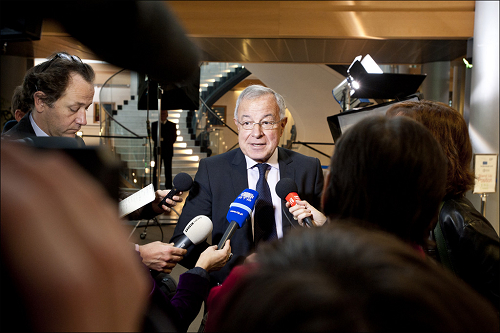Budget deal: "We managed to get the priorities right"
It was a budget deal that was long in the making, but the effort has been worth it. On 14 November, the EP's budget committee approved deals struck with member states on the EU budget for next year and the coming seven years, also known as the multiannual financial framework. The Parliament succeeded in its push to ensure more flexibility in funding EU programmes for the next seven years and successfully resisted calls for spending cuts in employment, research and innovation in the 2014 budget.

Alain Lamassoure
“Parliament has taken its responsibility by accepting a lower budget," said Alain Lamassoure, chairman of the budget committee, "But we managed to get the priorities right and prevent the EU from starting 2014 - the first year under the new multi-annual financial framework - in the red.”
Next year's budget
The Council agreed to the Parliament’s demands for more money to help tackle rising youth unemployment across the EU. For next year's budget the Parliament also secured more funds for humanitarian aid, refugees, asylum policy and Frontex, the EU’s external borders agency. Another €500 million was added to the EU's 2014 budget, bringing the total to €135.5 billion.
Long-term budget for 2014-2020
Although the political deal on the MFF 2014-2020 was reached already in June, the Parliament postponed the vote until its conditions were met. These included greater flexibility, allowing money to be more easily shifted between budget lines; covering payment shortfalls for this year's budget and setting up a high-level working group on ways to update how the EU collects its own income.
The EU's budget for the next seven years is €960 billion. All annual budgets in this period will have to be in line with the spending limits set in the long-term budget.
Mr Lammasoure, a French member of the EPP group, explained: “The European Parliament chose not to put into question the levels of annual maximal spending agreed by the member states at a time where money is scarce in national treasuries. In exchange, it obtained a review clause in 2016 which will enable to take into account the new economic situation and to review the expenditure as well as the revenue side of the European budget, so as to maximise its leverage effect to boost growth and jobs.”
Source: European Parliament
- 405 reads
Human Rights
Fostering a More Humane World: The 28th Eurasian Economic Summi

Conscience, Hope, and Action: Keys to Global Peace and Sustainability

Ringing FOWPAL’s Peace Bell for the World:Nobel Peace Prize Laureates’ Visions and Actions

Protecting the World’s Cultural Diversity for a Sustainable Future

Puppet Show I International Friendship Day 2020

